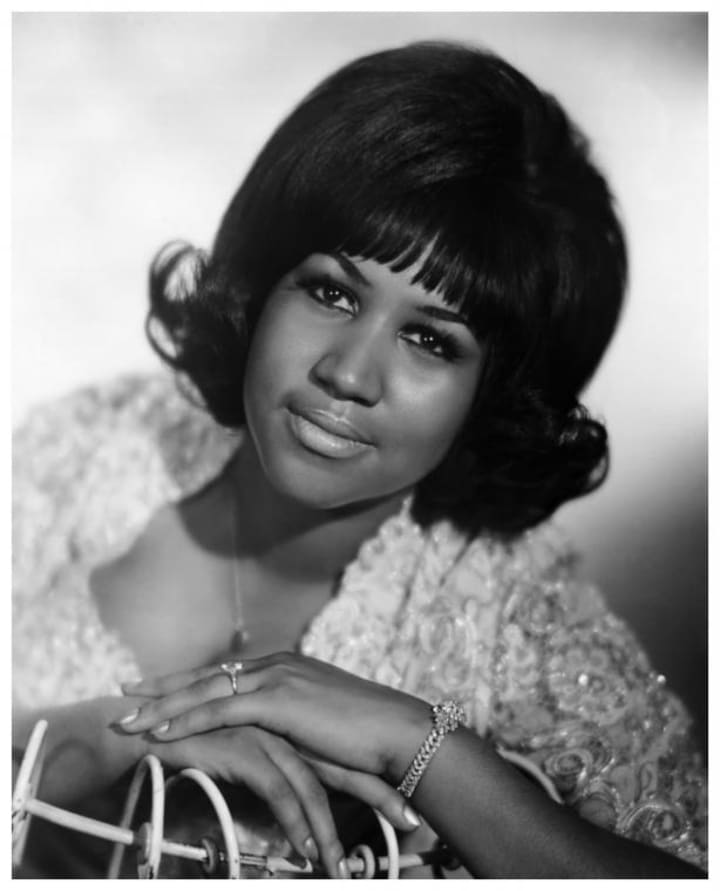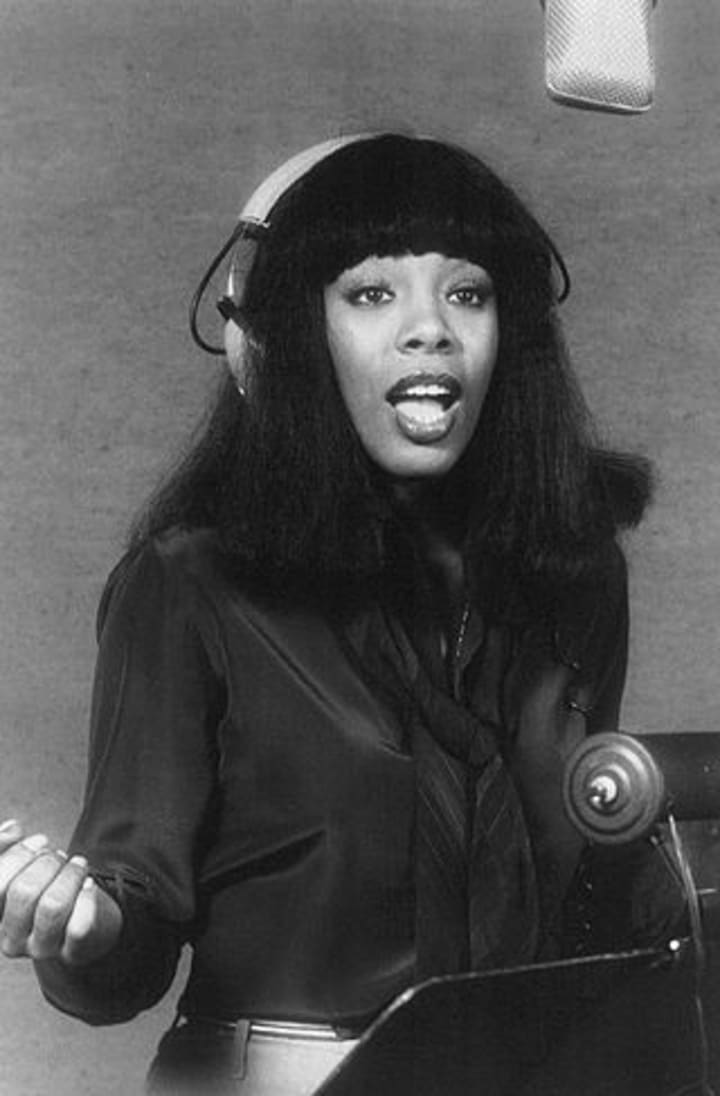Music Royalty
They came. They conquered. They led the way.

Black culture was brought to the mainstream US population after World War I had ended and American soldiers of all color returned to their homeland. Black men had contributed to their country’s victory and were hopeful that this would encourage and cultivate full citizenship and acceptance among their fellow white countrymen.
The ‘Great Migration’, when Black Americans began moving out of the rural South and into the cities and towns of the industrial North occurred around this same time in history. They brought with them music with African roots and story-telling and in time the general U.S. population adopted elements of that Black culture as its own.
Music had historically been a medium of expression for the African American community via the slave trade and it adapted while they worked on plantations, eventually developing into various genres such as the blues, jazz, R & B, gospel music and bluegrass.
Sexist attitudes during the early 20th century made it difficult for African American women to achieve success and recognition in mainstream music but despite this, women were still extremely influential in these early genres of music.
Historically, there have been many women of color who have achieved legendary status in their chosen musical genre and the following women challenged the racial disparity and led the way for other black women to confidently follow in their footsteps.

Ella Fitzgerald – Queen of Jazz
(April 25, 1917 – June 15, 1996)
Ella Jane Fitzgerald was born in Virginia, America and overcame a tumultuous adolescence to find stability and success in music as a revered American jazz singer. During her lifetime she won thirteen Grammy awards and sold over 40 million albums. Her perfect pitch, clear diction and an endless supply of melodic improvisations brought her universal acclaim. She was able to sing sultry ballads, sweet jazz and imitate just about every instrument in an orchestra. During her career she worked with all the jazz greats, from Duke Ellington, Count Basie and Nat King Cole, to Frank Sinatra, Dizzy Gillespie and Benny Goodman.
She began her career performing across the country with the Chick Webb Orchestra and made her first recording in 1935 ‘Love and Kisses’, with Chick Webb. She had her first hit with "A-Tisket, A-Tasket", a song she helped write and that would become a huge hit and make her a star. After Chick Webb died in 1939 the young singer became the band's lead leader until the band split up in 1942 when she chose to pursue a solo career.
Ella recorded a version of ‘Flying Home’ in which she indulged extensively in the phonetic improvisation known as scat. Other singers, most notably Louis Armstrong, had tried similar spontaneity but no one before Ella Fitzgerald employed the technique with such brilliant inventiveness. Her version of the song would become one of the most influential jazz records of the decade.
Ella started to become influenced by the experiments of such be-bop instrumentalists as Charlie Parker and Dizzy Gillespie and began to incorporate elements of be-bop rhythm and harmony into her singing and while touring with the Gillespie band in 1946 she embraced the music wholeheartedly. After releasing her be-bop version of ‘Lady Be Good’, industry powerhouses proclaimed her as great a master of bop as she had been of swing.
Music producer/manager Norman Granz recognized that Ella had what it took to be an international star and he convinced her to sign with him. Under Norman's management Ella joined the Philharmonic tour, worked with Louis Armstrong on several albums and began producing her infamous songbook series. From 1956 to 1964, she recorded covers of other musicians' albums including those by Cole Porter, Duke Ellington, Irving Berlin and Rodgers and Hart. The series proved wildly popular with both Ella's fans and the artists she covered.
On the touring circuit it was common knowledge that Norman Granz felt very strongly about civil rights and he expected equal treatment for his musicians regardless of their color and refused to accept any type of discrimination at hotels, restaurants or concert halls, even when they traveled through the Deep South. Ella and Norman enjoyed both a business relationship and friendship that would last a lifetime.
Ella was recognized as a civil rights activist and would use her talent to break racial barriers across the nation and was awarded the National Association for the Advancement of Colored People Equal Justice Award and the American Black Achievement Award.
From 1956 through to the mid 1960's Ella’s career soared and in 1957 she presented her own concert at the Hollywood Bowl. In April 1958 she gave a Carnegie Hall concert with Duke Ellington to celebrate the release of her four disc set ‘Ella Fitzgerald Sings the Duke Ellington Songbook’.
Known for her incredible work ethic Ella would often play two shows a day in cities hundreds of miles apart and would tour between 40 to 45 weeks of each year. Eventually this relentless schedule would begin to affect her health and she showed the first signs of fatigue when she nearly collapsed on stage during a concert in Munich in 1965.
When her contract came up for renewal in 1966 she was not resigned to the Verve label and signed to Capitol, where her producer, Dave Dexter, promised her he would experiment with a totally different sound for her. These albums would include a religious record, a country music album and a Christmas collection and would result in Ella searching insecurely for a new pop identity.
Norman Granz founded the Pablo label in 1973 and this would be the catalyst for Ella to return to her jazz roots. She also began performing regularly with symphony orchestras and in 1974 she teamed with Frank Sinatra and Count Basie for a two week concert extravaganza at the Uris Theater in New York that would gross more than a million dollars.
In September of 1986 Ella underwent quintuple coronary bypass surgery and doctors replaced a valve in her heart. She was also diagnosed with diabetes which was causing her eyesight to fail. These maladies did little to slow her down and she returned to the concert stage the next year. Despite her ill health she continued to perform into the early 1990's and although her quality of voice did slowly deteriorate compared to earlier in her career her singing would still retain remarkable rhythmic clarity.
In 1987 United States President, Ronald Reagan, awarded Ella the National Medal of Arts and it would be one of her most prized moments. France followed suit several years later when they presented her with their Commander of Arts and Letters award. Yale, Dartmouth and several other universities bestowed Ella with honorary doctorates.
By 1990 Ella had recorded over 200 albums and in 1991 she gave her final concert at New York's renowned Carnegie Hall. It would be the 26th time she had performed at that prestigious venue.
As the effects from her diabetes worsened 76-year-old Ella experienced severe circulatory problems and was forced to have both of her legs amputated below the knees. She never fully recovered from the surgery and three years later she died. The sadness of her loss reverberated around the world and the media was inundated with accolades from many of her fellow performers.
Ella Fitzgerald was laid to rest at the Sunset Mission Mausoleum at Inglewood Park Cemetery in Inglewood, California.

Aretha Franklin- Queen of Soul
(March 25, 1942 – August 16, 2018)
Aretha Louise Franklin was an American singer, songwriter, actress, pianist, and civil rights activist born in Memphis, Tennessee, to a father who was a Baptist preacher and a gospel singer mother. Her parents separated when she was six and her mother would die of a heart attack before Aretha was ten.
Her musical talent was evident from an early age and as a gifted pianist with a powerful voice she was widely regarded as a child prodigy. By her early teens Aretha was travelling the country with her father’s gospel revival show and whilst on tour she befriended gospel greats such as Mahalia Jackson, Sam Cooke and Clara Ward.
Life on the road exposed Aretha to adult behaviors and at the age of 14 she became a mother to a son, Clarence. A second child, Edward, would follow two years later. Her third child, Ted, was born in 1964 and her fourth son, Kecalf, in 1970.
With her father's blessing Aretha traveled to New York in 1960 and despite being courted by several labels, including major labels Motown and RCA, she signed with Columbia Records, who subsequently released the album Aretha in 1961.Two tracks from this album would make the R&B Top 10 but bigger success came later that year with the single ‘Rock-a-bye Your Baby with a Dixie Melody’, which got to number 37 on the pop charts.
In 1966 Aretha found critical acclaim and commercial success after signing with Atlantic Records in 1966 and releasing hit songs such as ‘Respect’, ‘(You Make Me Feel Like) A Natural Woman’, ‘Chain of Fools’ and ‘I Say a Little Prayer’. This success would propel her past her musical peers and by the end of the 1960’s her chart dominance earned her the title Queen of Soul.
During the civil rights movement Aretha became a symbol of Black empowerment and in 1968 she performed at the funeral of Martin Luther King Jnr with a heartfelt rendition of ‘Precious Lord’. Later that same year she was selected to sing the national anthem to begin the Democratic National Convention in Chicago.
Aretha’s success continued throughout the 1970’s and she worked with reputable producers such as Curtis Mayfield and Quincy Jones who encouraged her to expand her repertoire to include rock and pop covers. Along the way she won eight consecutive Grammy Awards for Best R&B Female Vocal Performance.
By 1975 Aretha’s popularity was beginning to fade into the background with the onset of the disco craze and an emerging set of young Black singers such as Chaka Khan and Donna Summer who began to eclipse her career. However, she did find a brief respite from slumping sales with the 1976 soundtrack to the Warner Brothers film Sparkle which topped the R&B charts and made the Top 20 in Pop. An invitation was also extended to perform at the 1977 presidential inauguration of Jimmy Carter.
Unfortunately a string of chart failures eventually ended Aretha’s relationship with Atlantic in 1979 and that same year her father was hospitalized after a burglary attempt in his home left him in a coma. As her popularity began to dwindle and her father's health declined Aretha was also saddled with a massive bill from the IRS.
In 1985 Franklin enjoyed a resurgence in popularity with the smash hit album ‘Who's Zoomin' Who?’ The album became Aretha’s biggest selling album, featuring the hit single ‘Freeway of Love’ as well as the collaboration ‘Sisters are Doin’ It for Themselves’ with the popular rock band The Eurythmics.
Her follow-up album in 1986, Aretha, also charted well and eventually went gold and her duet with British singer George Michael, ‘I Knew You Were Waiting (For Me),’ hit No. 1 on the pop charts.
In 1987 Aretha became the first female artist to be inducted into the Rock and Roll Hall of Fame and she was also awarded an honorary doctorate from the University of Detroit. That same year she released the album ‘One Lord, One Faith, One Baptism’ which won the Grammy for Best Soul Gospel Performance.
In 1993 after another lull in her career Aretha was invited to sing at the inauguration of Bill Clinton and the following year she received both a Grammy Lifetime Achievement Award and Kennedy Center Honors.
Over the duration of her career Aretha won eighteen Grammy Awards and having sold more than 75 million records worldwide is one of the best-selling music artists of all time. She also was inducted into the UK Music Hall of Fame in 2005 and into the Gospel Music Hall of Fame in 2012. The Pulitzer Prize jury in 2019 awarded Aretha a posthumous special citation "for her indelible contribution to American music and culture for more than five decades". In 2020, she was inducted into the National Women's Hall of Fame.
On August 12, 2018 it was reported that Aretha was gravely ill and bedridden in her Detroit home surrounded by family and friends. Four days later one of the greatest singers of all time succumbed to pancreatic cancer.

Donna Summer – Queen of Disco
(December 31, 1948 – May 17, 2012)
LaDonna Adrian Gaines was born in Boston, Massachusetts and was an American singer, songwriter and actress. She had shown an early interest in music and started singing in her church choir when she was eight years old and as teenager she was a popular student who frequently starred in school musicals. LaDonna was also something of a rebellious teenager who would often sneak out to parties much to her strict parents chagrin and she would become the lead singer of a psychedelic rock band named Crow as the only black musician in the group.
At the age of 18 she moved to New York where an audition in the Broadway hit Hair led to a prime spot in the show's road company and she later landed the part of Sheila in the German production of the classic musical theater work. After a year Donna switched to the Viennese cast of the show which led to her joining the Vienna Folk Opera and appearing in productions of Showboat and Porgy and Bess.
While on vacation in Switzerland, Donna met Austrian actor Helmut Sommer whom she married and their daughter, Mimi, was born in 1973. Donna adopted an anglicized version of his last name as her stage name which she kept after the couple divorced in 1976. Mimi was sent to live with Donna's parents in Boston while she stayed on in Germany and continued her budding musical theater career performing in productions of Godspell and The Me Nobody Knows.
By 1974 Donna was working as a part time model and backing vocalist and it was during a demo session for Three Dog Night that she met Pete Bellotte and his associate Giorgio Moroder. The men were impressed with her powerful voice and immediately signed her to their Oasis label where due to a spelling mistake on her first single ‘The Hostage’, her stage name became Donna Summer.
The single went to number one in France and Donna recorded several more singles and an album for Oasis called ‘Lady of the Night’. These sold well in Holland, Sweden, Belgium and Germany but the lack of professional promotion of her records led to her and her team having to effectively plug the songs themselves by stopping at radio stations to promote them.
That would all change with the release of a song called ‘Love to Love You Baby’. Donna had heard the song but was unsure of the lyrics so with the tape rolling she made up a sexy voice and filled in the words as best she could. Moroder and Bellotte liked what they heard and after a little tweaking they released the song in Europe in late 1974.
The track began stirring up club reaction in France and piqued American record executive Neil Bogart interest who licensed it to his fledgling Casablanca label. After editing the original 16 minute track down to a seven inch single ‘Love to Love You Baby’ became a huge European smash.
When Donna returned to America she was already a star and although she was never comfortable with her sex goddess image her producers convinced her that it was all part of the hype. Capitalizing on her good looks a publicity photo of Donna in a sexy pose was sent to all the discos in New York City along with a copy of ‘Love to Love You Baby’. Subsequently the song quickly went to number two on the Billboard Hot 100 and an album of the same name was released in late 1975 with both achieving gold status.
After the success of ‘Love to Love You Baby’ a series of Donna Summer albums that brilliantly projected the primal groove of disco and funk with symphonic strings and soaring dramatic vocals. She would record eight albums in four years all of which would achieve Gold sales status and the last four achieving Platinum. Donna would also win an Oscar and a Grammy for ‘Last Dance’ which was released as the theme to the movie Thank God it's Friday.
Donna would earn a total of forty two hit singles on the US Billboard Hot 100 in her lifetime with fourteen of those reaching the top ten. She would claim a top 40 hit every year between 1975 and 1984 and from her first top ten hit in 1976 to the end of 1982 she had twelve top ten hits. She was the first artist to have three consecutive double albums reach number one on the US Billboard 200 chart and charted four number one singles in the US within a twelve month period. Donna also charted two number one singles on the R&B Singles chart in the US and a number one single in the United Kingdom.
While her fortunes on the Hot 100 eventually would wane Donna would remain a force on the Billboard Dance Club Songs chart for her entire career. She would sell over 100 million records worldwide and win five Grammy Awards, making her one of the bestselling music artists of all time.
Donna Summer, one of the most recognizable voices of the disco era died in 2012 after a battle with lung cancer. She was 63. Donna was posthumously announced to be one of the 2013 inductees to the Rock and Roll Hall of Fame and was inducted on April 18, 2013, at Los Angeles' Nokia Theater






Comments
There are no comments for this story
Be the first to respond and start the conversation.